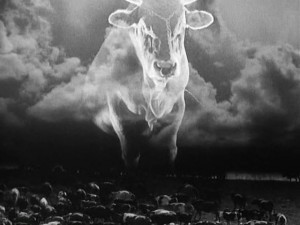This course aims at expanding our ability to interact with and to understand all of the complexities and nuances of the moving image. No matter its delivery system, the orchestration of image, sound and time constitutes, as one critic has put it, “a natural counterbalance to language as a way of accounting for the world.” With grounding in the formal qualities of cinema, we will explore the aesthetic and cultural ramifications of its transformation in the second half of the 20th century, and into the 21st. Professor: Ken Eisenstein. Screenings are free and open to the public.
Monday, September 1 at 7pm
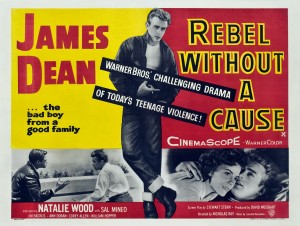
Rebel Without a Cause – 4K Restoration!
Directed by Nicholas Ray (U.S. 1955) 111 min. DCP. With James Dean, Natalie Wood, Sal Mineo.
The timeless classic that fixed James Dean as an immortal icon for frustrated youth. Dean’s sensitive portrayal of tormented adolescence and Ray’s compassion for the problems of the American family are writ brilliantly large in Cinemascope, drawn in angry, wounded reds.
Monday, September 8 at 7pm
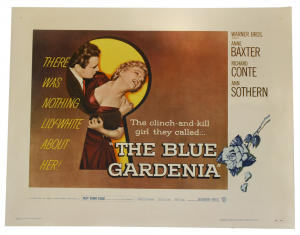
The Blue Gardenia
Directed by Fritz Lang (U.S. 1953) 90 min. With Anne Baxter, Richard Conte, Ann Sothern.
A noir set in a Langian world, where sympathetic characters are doomed by malignant forces. A despondent switchboard operator is seduced by a womanizer, then suspected of murdering him; a newspaper reporter intervenes, epitomizing the director’s cynical view of mass communication and its deceits.
Monday, September 15 at 7pm
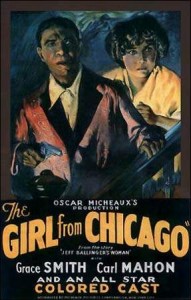
The Girl From Chicago
Directed by Oscar Micheaux (U.S. 1932) 70 min. With Grace Smith, Eunice
Brooks, Starr Calloway.
Pioneering black filmmaker Oscar Micheaux made 44 race films (made with
mostly all-black casts for black audiences and screened in segregated theaters) between 1919 and 1948, working against stereotypes of African-Americans that pervaded mainstream cinema. This story of an undercover federal agent who falls for a schoolteacher being menaced by a local crime boss reaches fascinating depths as the action moves to Harlem.
Monday, September 22 at 7pm
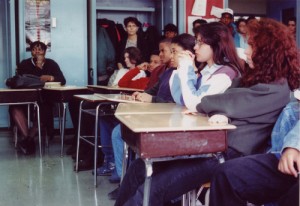
High School II
Directed by Frederick Wiseman (U.S. 1994) 220 min.
Twenty-five years after his Vietnam-era portrait of a Philadelphia high school, America’s greatest documentarian focused on a successful alternative high school in New York’s Spanish Harlem. In the immediate aftermath of the Rodney King verdict, the racially diverse student body and teachers discuss Shakespeare, conflict resolution and how to accommodate a fifteen-year-old mother’s return to school.
Monday, September 29 at 7pm
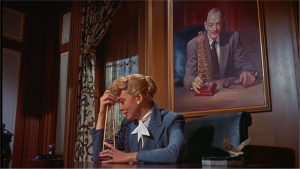
Written on the Wind
Directed by Douglas Sirk (U.S. 1956) 99 min. 35mm. With Robert Stack, Dorothy Malone, Rock Hudson, Lauren Bacall.
Sirk’s always elegant depiction of human despair and loneliness embraces the Hadleys, a family wracked by spiritual degradation. Stack, the oil-rich clan’s alcoholic son, and his best friend (the humbler, sensible Hudson) are both are in love with the radiant Bacall – to the chagrin of Malone, the other miserable Hadley in Sirk’s sublime melodrama.
Monday, October 6 at 7pm
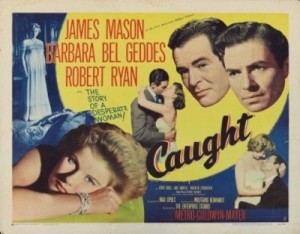
Caught – Preservation Print!
Directed by Max Ophüls (U.S. 1949) 88 min. 35mm. With James Mason, Barbara Bel Geddes, Robert Ryan.
In Ophül’s stunningly shot noir melodrama, a young fashion model (Bel Geddes) falls for a tycoon (Ryan) whose charming facade conceals a psychopathic core. 35mm restored print courtesy of the UCLA Film & Television Archive. Preservation funding provided by The Film Foundation and the AFI/NEA Preservation Grants Program.
TOP OF PAGE
Old and New (a.k.a. The General Line)
Directed by Sergei Eisenstein (U.S.S.R. 1929) 121 min. With Marfa Lapkina, Vasya Buzenkov, Kostya Vasiliev. Silent with Russian intertitles.
This was Eisenstein’s last silent, made in response to the Communist Party’s appeal for artwork addressing the transformation of the backward Russian countryside. It’s a simple story of collectivism, envisioned by cinema’s greatest pioneer of expressionist montage and erotic poetry.
Monday, October 27 at 7pm
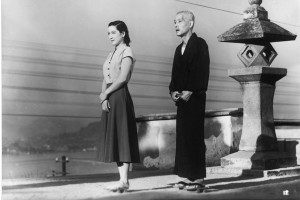
Tokyo Story – Recent Restoration!
Directed by Yasuziro Ozu (Japan, 1953) 136 min. DCP. With Chishu Ryu, Chieko Higashiyama, Setsuko Hara. Japanese with English subtitles.
The crowning achievement of the unparalleled Yasujiro Ozu follows an aging couple’s journey to visit their grown children in postwar Tokyo. The director plumbs his recurring theme of generational conflict, surveyed with his customary delicacy, incisive perspective on social mores and deceptively simple cinematic style.
Monday, November 3 at 7pm
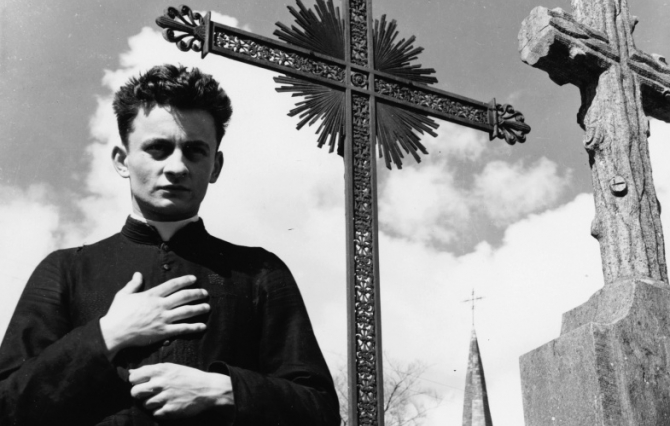
Diary of a Country Priest
Robert Bresson (France 1951) 115 min. 35mm. With Claude Laydu, Nicole Maurey, Jean Riveyre, André Guibert. French with English subtitles.
A new priest arrives in a French country village to attend to his first parish and is immediately rejected by the apathetic and hostile rural congregation. Through his diary entries, the suffering young man relays a crisis of faith that threatens to drive him away from the village and from God. With his fourth film, Bresson began to implement his stylistic philosophy, stripping away inessential elements from his compositions, dialogue and music, exacting a purity of image and sound.
Monday, November 10 at 7pm
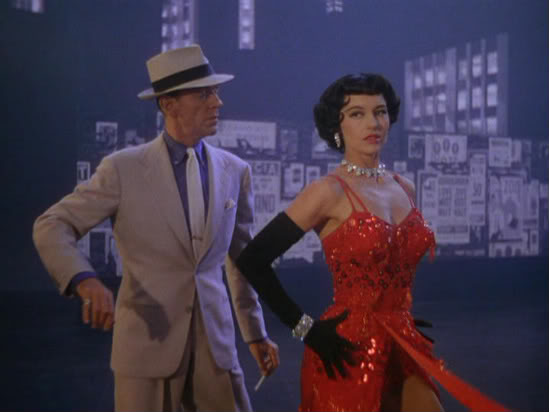
The Band Wagon
Vincente Minnelli (U.S. 1953) 112 min. 35mm. With Fred Astaire, Cyd Charisse, Oscar Levant.
Rather than the forced transition from silent to sound pictures depicted in Singin’ in the Rain (1952), here the world of entertainment is unsettled by the takeover of theaters by penny arcades. Amidst these changes, Fred Astaire’s once-celebrity musical-comedy performer now goes unrecognized; the middle-aged dancer—joined by a witty Comden-and-Green-like writing team (Nanette Fabray and Levant) and a prima ballerina (Charisse)—makes a last-ditch attempt to revive his career by starring in a pretentious, ultra-modern version of Faust in Minnelli’s expressionistic musical about the making of a musical.
TOP OF PAGE
Monday, November 17 at 7pm
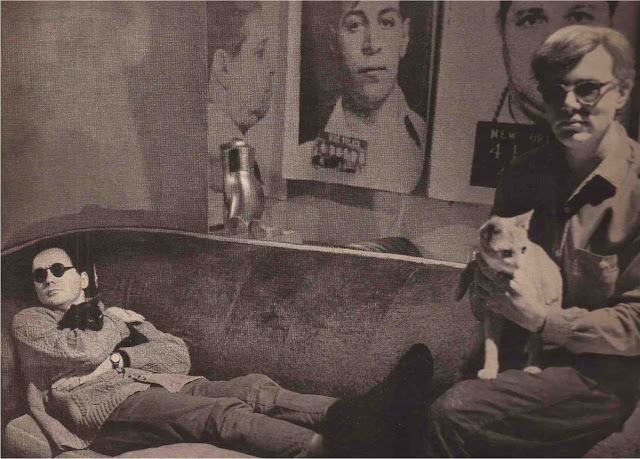
Eat
Andy Warhol (U.S. 1964) Approx. 39 min. 16mm. With Robert Indiana.
Painter Robert Indiana (more famous for his Love paintings and sculptures than the Eat canvases and signs that preceded them), starved himself before Warhol’s shoot only to be given a single mushroom and asked to make it last as long as possible, while Warhol shot nine rolls of film. Indiana obliged.
“Eat works exactly as a session of Zen meditation might, exhausting viewers’ mental barriers and defenses in order to open them up to a new level of awareness – the better to enjoy the portrait… Like all of Warhol’s early minimal film works, Eat is a film about the mind.” – Andy Ditzler, Frequent Small Meals program notes
Followed By:
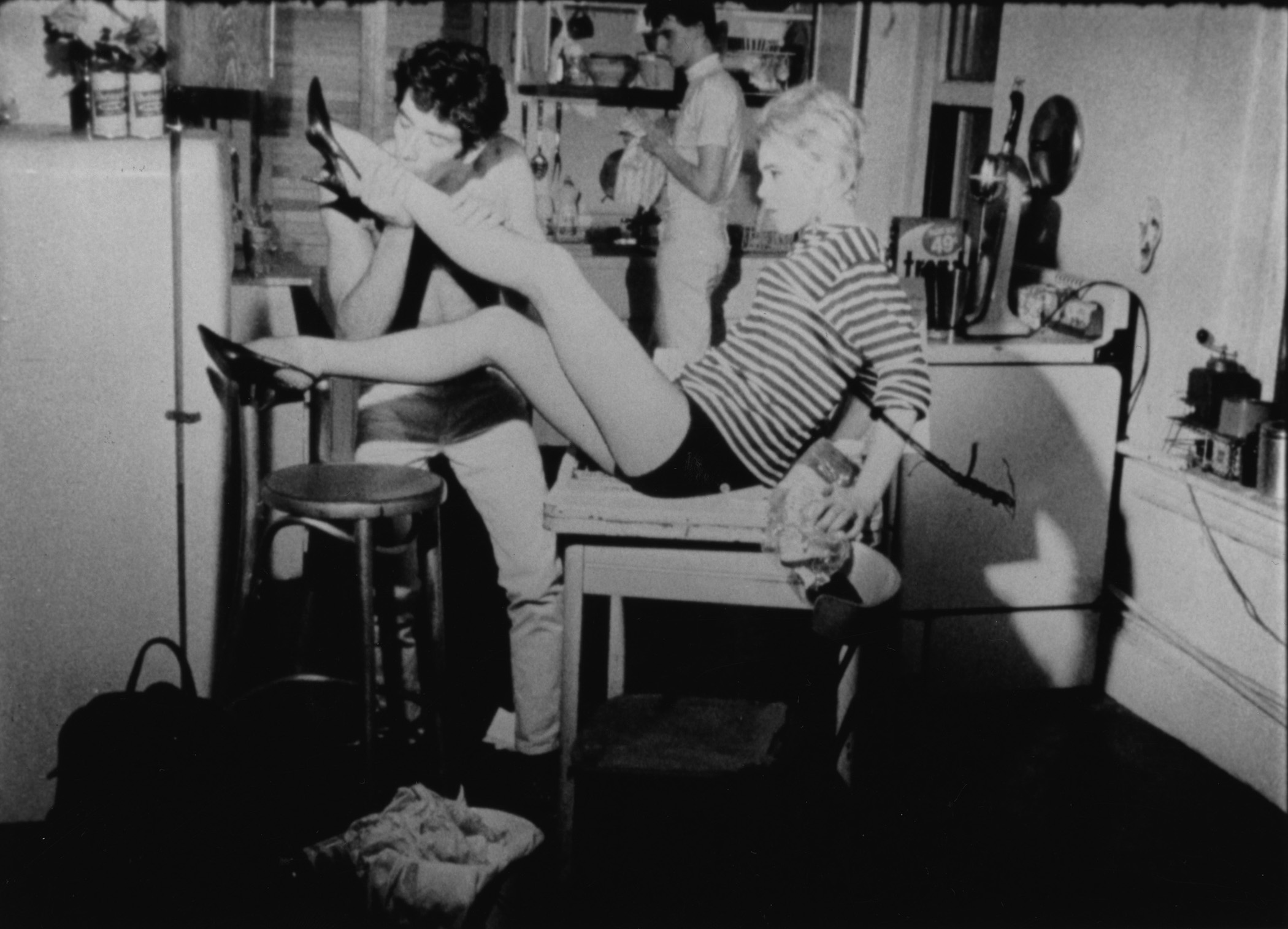
Kitchen
Andy Warhol (U.S. 1965) Approx. 66 min. 16mm. With Edie Sedgwick, Electrah, Rene Ricard.
Filmed in the New York City kitchen of Bud Wirtschafter, soundman on several early Warhol films, Kitchen was intended to be the vehicle that would propel Edie Sedgwick to stardom. As it happened, Edie had difficulty memorizing her lines, improvised much of her performance, sneezed continuously and burned her hand on the stove–sending the proceedings into a directionless narrative as Warhol’s odd cast of characters offer various remedies on how to deal with the burn.
TOP OF PAGE
Monday, November 24 at 7pm
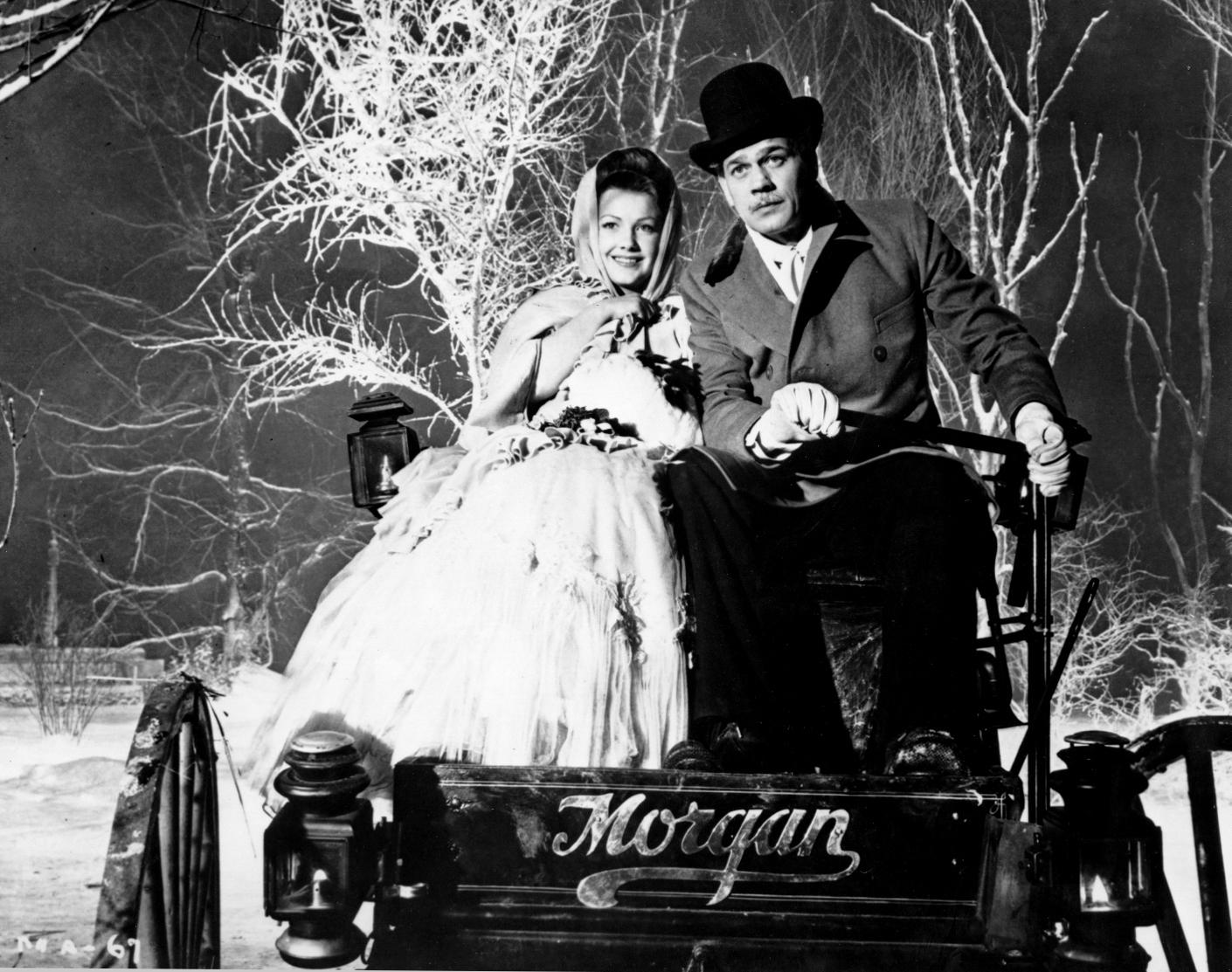
The Magnificent Ambersons
Orson Welles (U.S. 1942) 88 min. 35mm. With Joseph Cotten, Dolores Costello, Anne Baxter.
Welles’ portrait of a midwestern town’s transformation amidst the onslaught of the industrial age “uses the full weight [of the director’s] Gothic style” to transform Booth Tarkington’s Pulitzer Prize winning novel into a “dark, almost nervous film” (James Naremore). As time inexorably passes, the aristocratic Ambersons remain stuck in a decaying past while Eugene Morgan (Cotten) invents the automobile and finds fortune. His frustrated love for Isabel Amberson (Costello) is mirrored in the next generation when his daughter meets Isabel’s bratty son at the grand Amberson ball.
Monday, December 1 at 7pm
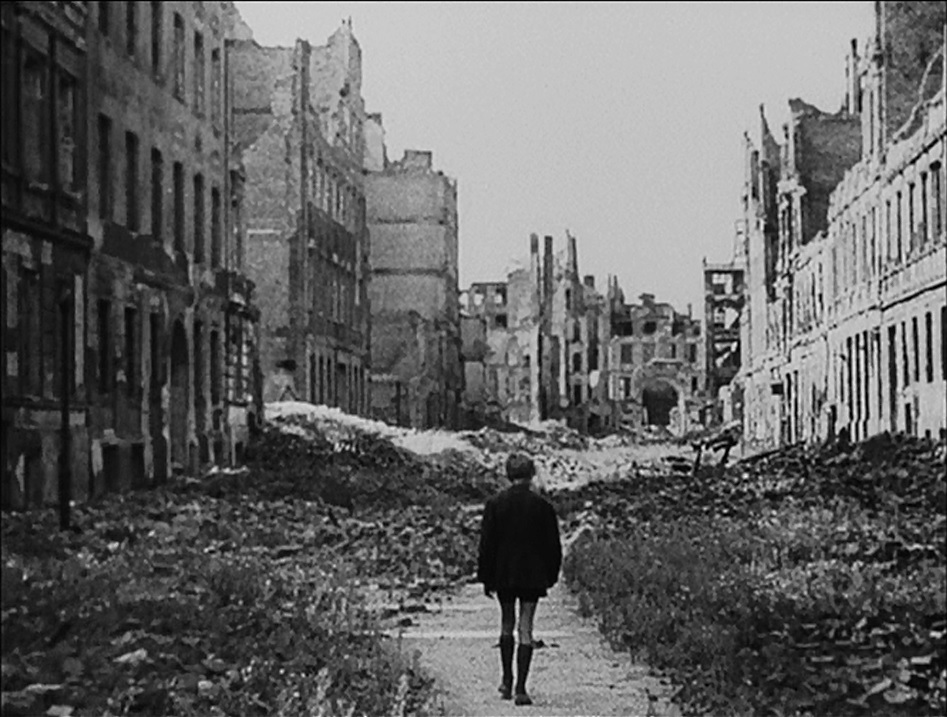
Germany Year Zero
Roberto Rossellini (Germany, Italy 1848) 78 min. With Edmund Meschke, Franz Gruger, Ingetraude Hinze. German with English subtitles.
The concluding chapter of Rossellini’s “War Trilogy” is the most devastating, a portrait of an obliterated Berlin seen through the eyes of a twelve-year-old boy. Living in a bombed-out apartment building with his sick father and two older siblings, young Edmund is mostly left to wander unsupervised, getting ensnared in the black-market schemes of a group of teenagers and coming under the nefarious influence of a Nazi-sympathizing ex-teacher.
Monday, December 8 at 7pm
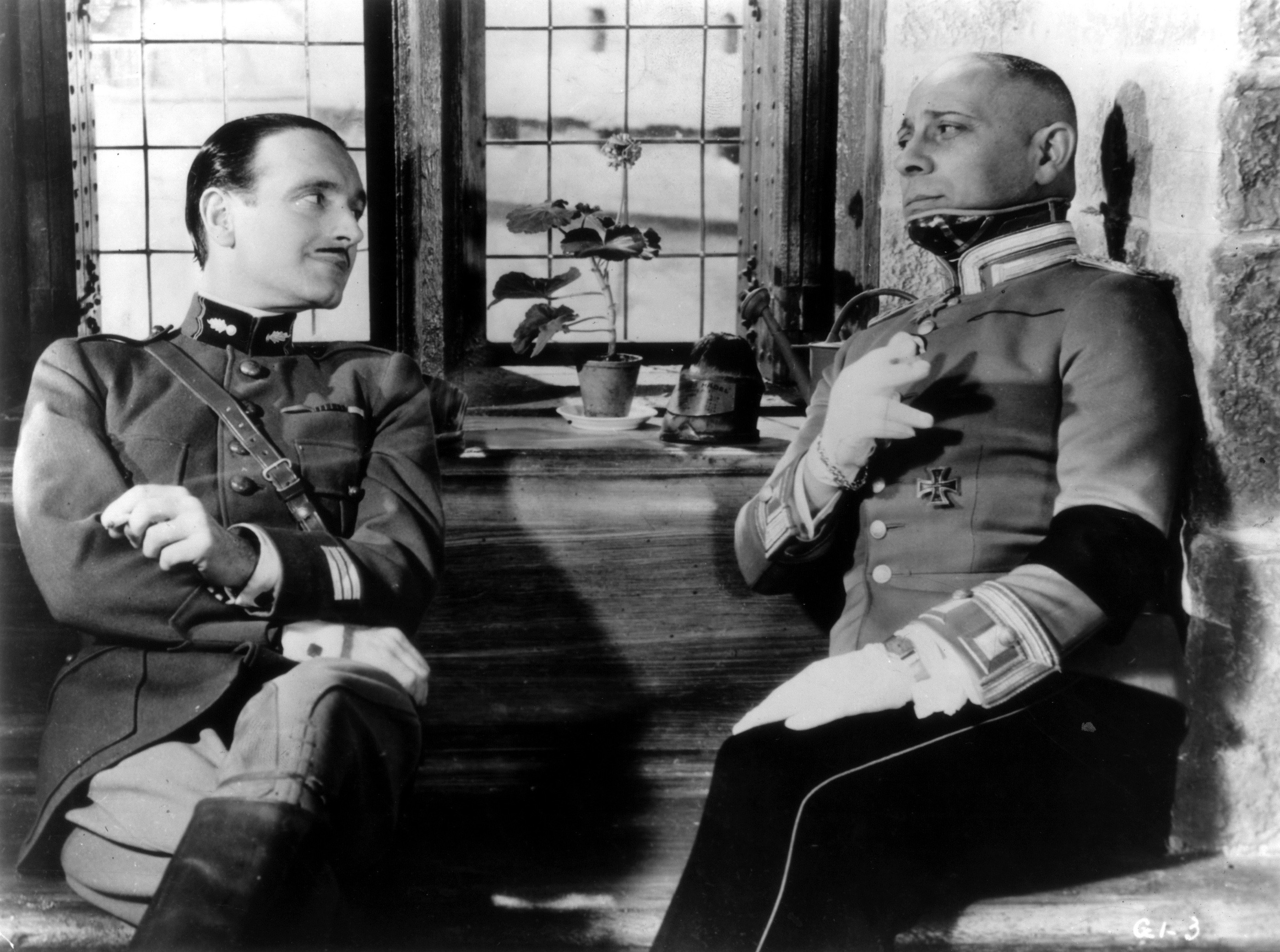
Grand Illusion
Introduced by Nicholas Macdonald, author of In Search of La Grande Illusion. A book signing will follow the screening.
Jean Renoir (France 1937) 114 min. 35mm. With Jean Gabin, Pierre Fresnay, Erich von Stroheim, Marcel Dalio. French with English subtitles.
One of the very first prison escape movies, Renoir’s anti-war masterpiece was partly inspired by stories of the air ace who saved the director’s life during the Great War.. A celebration of the brotherhood of man, across class and frontiers, as well a kind of elegy for an international aristocracy, the film stars Gabin and Fresnay as French soldiers held in a World War I German prison camp, and Erich von Stroheim as the unforgettable Captain von Rauffenstein.
